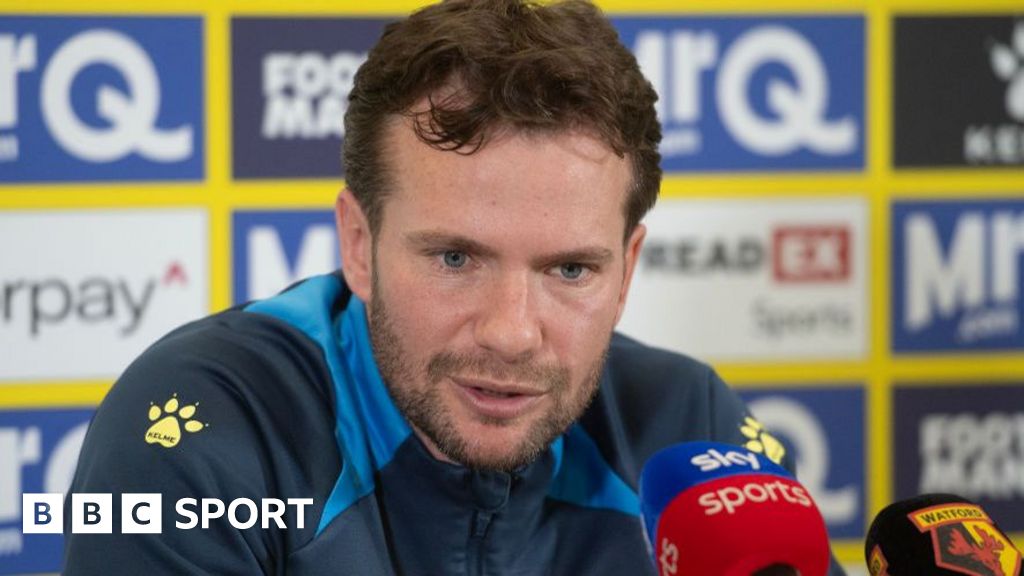


After Watford’s Good Friday draw with Leeds, Honorary Life-President Elton John gave him a call.
“Elton is great,” he said. “He said how much he enjoyed it and how much he enjoyed a Watford man being in charge. He knows how passionate I am about the club.”
Almost half of Cleverley’s professional appearances came for Watford. Along with Manchester United, managing them was a clear aim when he swerved the post-playing-career media world.
“I love the feeling of working towards something every day, whether that is a result, a relegation battle, a title charge,” he said. “Football has been my life since I was a kid. I like being on the inside of a club, having real impact, doing the nitty-gritty on the grass, taking the tactical aspects of training, enjoying the little game of chess football is becoming now.”
He is not enjoying the travails currently being experienced at Old Trafford.
“I go back to environment,” he said. “Look at the dressing rooms of Liverpool and Manchester City.
“I don’t think they [United] are that far away in terms of quality, but when you look at how people react to mistakes, to going behind, to poor form, it is chalk and cheese. They are a long way behind the other two.”
United is not his concern just now – his immediate task is navigating the final two games of a difficult Championship campaign for the Hornets.
His record so far is one win, one defeat and five draws, the latest against Hull.
And while short tenures are not exclusive to Watford, Cleverley knows the time to make an impression is limited.
“I approach it with an incredible amount of self-belief,” he said. “I feel like I am the guy who can get it right, I am the one who can take it forward.
“I don’t know it all, far from it, but we have a clear vision about where we can improve the team and we have a longer-term plan, if needed, for where we can get to.”
Cleverley is still waiting to be told whether he will be given the job on a permanent basis. And as the first of the new breed, totally conversant with the social media age, he knows managerial techniques of the past on their own will not work any more.
“That is where my time in the academy really helped,” he said. “Even the younger generation below the first-team players don’t seem to respond to fear as much as they did in my time.
“For me it was respect, scared, react, do the business, in that order. Now you lose people a bit more through fear. You need to show players you want to help. That is how you get a response. That is my style. I am not saying it is right or wrong, but it is my way and I will stick to it.”